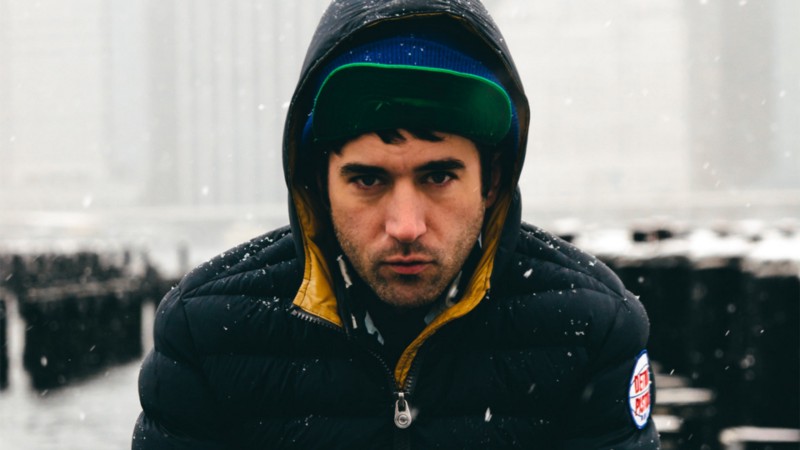
I find it hard to say too much about this album without first drawing a line to last year’s Sun Kil Moon album, Benji. I honestly feel bad every time I do it, because an album like Stevens’ Carrie & Lowell deserves to stand on its own, without constantly being tied by this invisible string in my mind.
While I guarantee Stevens would balk at the comparison, it’s ultimately a compliment. Benji was my favorite album of 2014 because of its blistering honesty and intimacy. I’ve always felt that the end goal of art is to connect with your audience and make them feel something. By that measure, Benji gets an A+. So does Carrie & Lowell.
Last summer I blasted at least two or three layers of skin off my hip while sliding into second base in a co-ed softball game. (I was safe, thanks for asking.) The stupid thing oozed and bled and took forever to heal because it was in an extremely inconvenient location. My day-to-day life got in the way and irritated it to the point where it couldn’t seem to ever heal.
That’s what Carrie & Lowell feels like. An open would that’s struggling to scab.
You can find details of the album’s inspiration elsewhere, but suffice it to say that Stevens and his mother had an extremely rocky relationship prior to her passing from cancer in 2012. Stevens’ wounds are clearly slow to scab, because this “goodbye letter” is arriving three years later.
The album chronicles the ebbs and flows of their relationship (“When I was three, three maybe four, she left us at that video store”, “Sitting at the bed with the halo at your head. Was it all a disguise, like Junior High?”) before reaching a head on the album’s starkest moment, “The Only Thing”.
The track (and the rest of the album) is marked my an almost uncomfortable tone. It sounds like Stevens is sitting next to you singing this wildly saddening music into your ear. So when the song opens with a pretty frank threat of suicide, it strikes a chord.
In fact, the whole thing reads like a suicide letter on the surface. Stevens threatens driving his car off a cliff, cutting his wrists, drowning, tearing his eyes out, tearing his heart out, tearing his arms out, etc. You get the idea.
But I don’t think that’s really the message here. This is not “I’m going to kill myself.” It’s “C’mon, God. Cut me a break.” It’s not a threat, it’s a plea.
Stevens wonders aloud if life is even worth living after someone you love is gone:
“Should I tear my eyes out now?
Everything I see returns to you somehow
Should I tear my heart out now?
Everything I feel returns to you somehow
I want to save you from your sorrow”
Ultimately, the song never finds a true resolution, although Stevens does give us a reason why he hasn’t “checked out” in the three years since this life-altering event actually occurred:
“The only reason why I continue at all
Faith in reason, I wasted my life playing dumb
Signs and wonders: sea lion caves in the dark
Blind faith, God’s grace, nothing else left to impart”
The complex depth of his relationship with his mother is splayed for everyone to see on Carrie & Lowell. By his accounts, he has every reason to hate her, but “The Only Thing” displays an incredibly deep longing, despite the fact that he never even truly knew his mother:
“In a veil of great disguises; how do I live with your ghost?”
I think perhaps the most honest and intimate aspect of this album is that there isn’t a true conclusion. From the listener’s perspective, Stevens doesn’t seem to ever reach a point where he can say, “Okay, I’m at peace.”
But that’s real.
Sometimes conclusions don’t make sense or look pretty, especially to outsiders. Sometimes you just have to sort through everything until it feels right. There’s not a neat little bow here, just a vomit pile of memories and emotions. Despite the brutal nature of it all, I can’t help but get the feeling that Stevens’ wound is finally starting to scab, happy ending or not.
